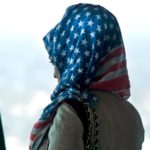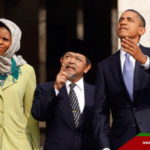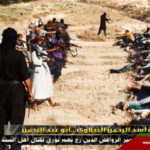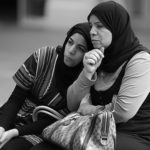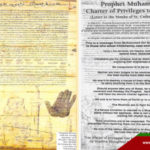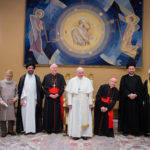FOR IMMEDIATE RELEASE
I am writing as an American gravely concerned about Saudi Arabia’s recent execution of the prominent Muslim cleric and opposition leader Sheikh Nimr al-Nimr. The Saudi government’s unjust execution of Sheikh Nimr for his peaceful opposition activities will only exacerbate already existing sectarian tensions and throw the region into greater instability. The Obama Administration’s continued inaction on Saudi Arabia’s human rights abuses perpetuates a dangerous regional environment that could cause even greater conflict and serve to threaten US interests in the Gulf and the region writ large. As a constituent, I urge you to call on President Obama to order a full review of the United States’ bilateral relationship with the Kingdom of Saudi Arabia, including bilateral military cooperation and arms sales, security assistance, and training.
Sheikh Nimr was an active opposition leader in Saudi Arabia’s Eastern Province who dedicated much of his life to advocating for equal rights for all of Saudi Arabia’s citizens. When protests erupted calling for political and religious reforms in Saudi Arabia’s marginalized Eastern Province in 2011, Sheikh Nimr expressed his support for the protesters and became a figurehead of the protest movement. In his speeches, he advocated for peaceful activism, highlighting the “roar of the word” as the key means to push the Saudi Arabian government to reform and ensure that all its citizens enjoyed equal rights.
In July 2012, the Saudi government violently arrested Sheikh Nimr for his peaceful opposition activities. After holding him without charge for more than eight months, the government brought him before the Specialized Criminal Court, Saudi Arabia’s terrorism tribunal. The prosecutor demanded the death sentence under charges that included breaking allegiance with the ruler, inciting sectarian strife, and supporting rioting, despite the peaceful nature of his opposition. On 15 October 2014, after a series of hearings marred by due process violations, the judge sentenced Sheikh Nimr to death. On January 2nd, the Government of Saudi Arabia executed Sheikh Nimr and 46 others, despite numerous calls for his release by the international community.
Events in the region over the weekend reveal the negative effect of Sheikh Nimr’s execution on regional stability. Protesters in Iran attacked the Saudi Arabian embassy in Tehran and called for the downfall of the Saudi government. In response, Saudi Arabia, the UAE, and Bahrain severed diplomatic ties with Iran. Peaceful demonstrations erupted in Saudi Arabia, Bahrain, Iraq, India, and Lebanon in protest of the Saudi government’s decision. The unjust execution of Sheikh Nimr will likely spark additional sectarian strife and contribute to further instability in an already unstable region.
Saudi Arabia’s decision to execute a political prisoner for the first time in decades comes at a time when sectarianism has become one of the leading forces driving regional conflict. Saudi Arabia’s continued persecution of peaceful opposition figures, amidst regional crises already driven and exacerbated by sectarian tensions, will only lead to greater conflict and instability. The United States Government has an obligation to ensure that its allies uphold basic human rights and act to promote regional stability, not inflame regional tensions.
Media Contacts:
Shabbir Syed, Director
Muslims for Peace, Inc.
P.O. Box 6262, Monroe, NJ 08831
Email: pr@muslims4peace.org



